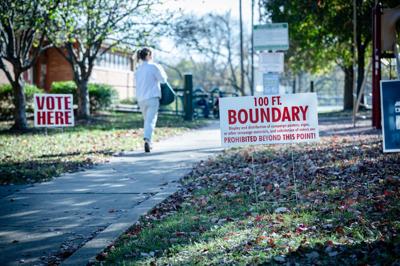This story is a partnership between the Nashville Banner and the Nashville Scene. The Banner is a nonprofit, nonpartisan news organization focused on civic news and will launch later this year. For more information, visit NashvilleBanner.com.
The Tennessee General Assembly has queued up a number of bills this session seemingly aimed at Nashville, including defunding the bonds for the Music City Center and cutting the size of the Metro Council. Now there’s legislation that could add an element of chaos to this year’s mayor’s race: eliminating the runoff for local elections.
A bill sponsored by Rep. Jason Zachary (R-Knoxville) and Sen. Brent Taylor (R-Memphis) would allow a plurality of votes to determine the winner instead of a majority. Currently, any mayor, vice mayor or council seat requires 50 percent plus one in order to determine a winner. The final language is not clear, as it was filed as a placeholder.
In Zachary’s district of Knoxville, Democrat Indya Kincannon finished second to Republican Eddie Mannis in the nonpartisan 2019 mayor’s race, but neither won a majority of the vote. Kincannon won the runoff. In Taylor’s Memphis, there is no runoff.
Most mayoral races in Metro’s history have gone to a runoff. In 2015, both Megan Barry and David Fox narrowly edged out Bill Freeman to make the second contest. Barry won the runoff by more than 10,000 votes.
In heavily Democratic Nashville, eliminating the runoff would seemingly create the only path for a Republican to have a shot at winning the race. Conservative Vanderbilt professor Carol Swain received 23 percent of the vote in the 2018 special election and 22 percent in the 2019 mayoral election, finishing second and third, respectively. In 2019, though, much of the moderate anti-Briley vote flowed to John Cooper instead of Swain. A lone Republican able to appeal to both conservatives and some moderate voters could potentially have an advantage in a field crowded with candidates largely appealing to Democratic bases.
Sen. Jeff Yarbro (D-Nashville), who’s mulling a potential mayoral run himself, says the proposal is anti-democracy in nature.
“Eliminating runoff elections by state mandate is a terrible idea,” Yabro says. “It would be especially reckless to pass a law like that to affect this year's elections or anytime soon, because that's going to be seen as the state trying to interfere with the decisions of the voters.”
Critics of runoffs point to it as an institution, like at-large seats in the Metro Council, created to maintain white power.
“Runoffs are a relic of the Jim Crow South,” Taylor tells the Banner. “They were designed to prevent minorities from winning elections. I don’t know that it has the Jim Crow effect any longer, but even if the Black vote has matured to the point and white vote has matured to the point that they would vote for a candidate of another race, still doesn't justify relic of Jim Crow.”
Political scientist Sekou Franklin agrees with the origins, noting that special elections sprang up around the South in the 1970s to help white candidates in areas where African Americans began exercising more electoral power. But that’s changed, he says.
“Over time that narrative of runoffs [being] against African American candidates has disappeared, that's the best way I can describe it,” says Franklin, a professor of political science at MTSU. “[Black voters] became normalized into the process and have experienced success in runoff election systems.”
Coincidentally, the news comes the same week that former aide to Gov. Bill Haslam and Sen. Lamar Alexander Alice Rolli began exploring a potential run for mayor. Her treasurer for the effort? Former mayoral candidate David Fox.
Rolli says she was considering a run for Metro Council at-large, but the state’s threats to change the makeup of the council put her efforts on pause. When Mayor John Cooper announced he would not seek reelection, she changed paths.
“My reason then was looking at this very destructive narrative between the state and the city that said, ‘You know, who can we work with? How do we work together?’” Rolli says. “And you know, and I think that that takes credible people from both parties to raise their hand and say, ‘We can work together and that was the place that I thought I could help serve the city.’”





